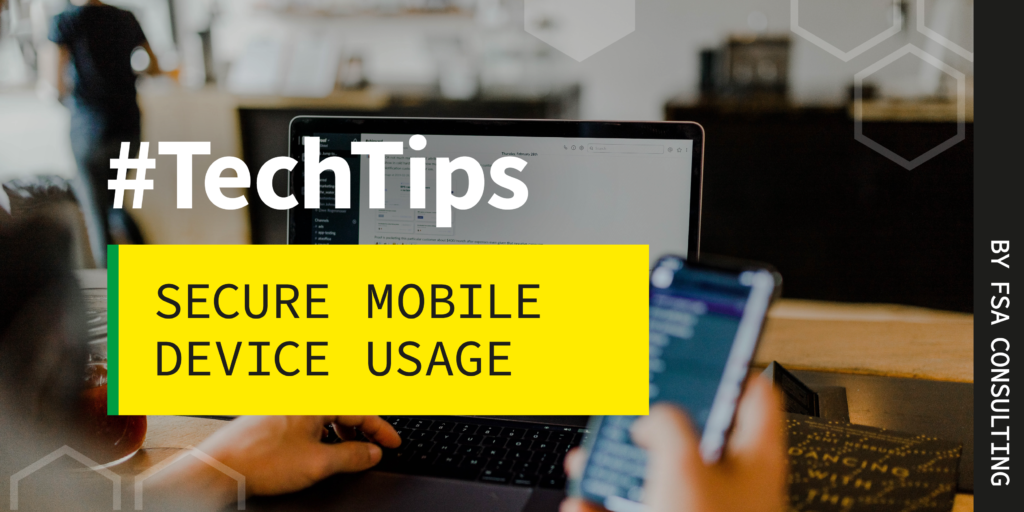Mobile devices are an essential part of your business infrastructure. Proper mobile device usage is essential. Laptops, tablets, and smartphones make sure that folks are connected when remotely, that you can present to clients, and even that customer interactions like registration or POS can be done anywhere in the room.
Mobile Device Usage
As a small business owner, determining where to invest your dollars is always critical, and often, an easy way to keep costs down is becoming a BYOD – Bring Your Own Device office. Your employees generally all have a smartphone and a laptop, so with BYOD, it is the protocol for staff to use their own devices rather than providing them. Like any hardware decision, there are pros and cons.
The immediate benefit is to your bottom line. Without having to invest in the upfront cost of new hardware (but there are ways to make upgrades easier on your budget) from the bottom line, BYOD can be a beneficial technology decision. It can be annoying for your employees to have separate work and home devices. Making sure you have each device, not to mention their specific chargers and peripherals, adds a bit of stress to their days.
Network Security
But with these benefits, there are also risks. Every time a new unsecured device connects to your network, you are putting your entire system at risk. You need to make sure that your network and data are secure. Implementing firewalls, secure connections, and encryption protocols is your first line of defense.
You want comprehensive protection with firewalls that protect both hardware and software. A hardware firewall separates devices from the Internet, while a software firewall protects individual devices.
There must also be protections when your network and devices communicate with the Internet and outside. Use a trusted VPN for your company’s network. Employ strong encryption for Wi-Fi networks and implement two-factor authentication when accessing sensitive systems and applications.
Strong Policies
If you provide devices or are a BYOD office, it is crucial to implement strong mobile device usage policies. It can be easy to think that these devices belong to your staff, but they must also be recognized as vital parts of your IT infrastructure. A BYOD policy outlines how devices can be used for work and the security rules and best practices employees should follow.
Your BYOD should be tailored to your organization but may include the following topics.
- Acceptable devices
- Make sure the devices are compatible with your network and security measures.
- Permitted use
- Just like a workplace-provided device, there may be limits to how employees use their devices for work.
- Security
- Outline and reinforce the security measures in place
- Privacy and Permissions
- Since it is an employee device, you want to ensure that their privacy is respected and that there is a separation between company and personal data.
- Reimbursement
- Companies may offer reimbursement for using personal devices, subsidizing the purchasing of devices, or payment for internet and mobile data plans.
- Tech Support
- Determine how much your IT department can or will be involved in servicing and troubleshooting device issues.
- Off Boarding
- In a BYOD environment, employees will not turn in their hardware when they leave the company. Therefore, it is important to have procedures to remove data and access company resources.
All security starts with employee education. The people using the devices and accessing your network are your first line of defense. Security training should be done during onboarding, throughout the year, and as new threats and security measures are implemented.
Want to make sure that the devices coming into your office are beneficial to your business and not a risk? Contact us today for a free analysis of your IT infrastructure and security.

